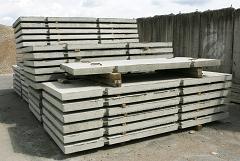Estonia announced strong economic growth figures for the fourth quarter of 1999, appearing to mark the end of a recession triggered by economic turmoil in neighboring Russia.
Published:
30 January 2000 y., Sunday
The economy expanded by 4 percent in the fourth quarter of last year, the first significant growth registered for 1999, according to the Estonia_s ministry of finance. In the first two quarters of last year, the economy shrank—by almost 6 percent in the first quarter and 2 percent in the second. In the third quarter, the economy grew by a paltry .2 percent. Even with strong year-end growth, the economy in 1999 still contracted overall by 1 percent. But a finance ministry spokesman, Daniel Vaarik, said Monday_s fourth-quarter data meant Estonia was officially out of recession.
He said annual GDP growth for 2000 should be around 4 percent. The official said the improved world economy had boosted Estonia_s economic performance. He argued that government steps to reign in spending also underpinned the recovery. Others analysts also pointed to growing consumer demand, an increasingly dynamic banking sector and lower interest rates as key factors. Fast-paced growth followed the implementation of tough market reforms in the early 1990s, with annual growth in Estonia peaking at 11 percent in 1997. But like with other countries in Eastern Europe, the collapse of the Russian market in 1998 came as a blow. Russia was a main export market for many large Estonian industries and farmers, and they were hit especially hard. Like Estonia, Latvia and Lithuania also saw growth rates drop following the deepening economic crisis in Russia. But after near-zero growth in 1999, they say they also expected growth rates of between 3-4 percent for 2000.
Copying, publishing, announcing any information from the News.lt portal without written permission of News.lt editorial office is prohibited.
The most popular articles
 The Kakheti Regional Roads Improvement Project for Georgia aims to reduce transport costs and improve access and traffic safety for the Kakheti regional roads.
more »
The Kakheti Regional Roads Improvement Project for Georgia aims to reduce transport costs and improve access and traffic safety for the Kakheti regional roads.
more »
 “Don Quixote – Made in Romania” brought the curtain down on the Cultural Days of the European Central Bank (ECB) 2009, with an expressive combination of tap dance, folklore, pantomime and martial arts.
more »
“Don Quixote – Made in Romania” brought the curtain down on the Cultural Days of the European Central Bank (ECB) 2009, with an expressive combination of tap dance, folklore, pantomime and martial arts.
more »
 The Latvian Finance and Capital Market Commission permitted Mr. Vladimir Antonov, who is also the main shareholder of AB Bank SNORAS, to acquire and manage up to 33 per cent of the shareholding of the Latvian bank AS “Latvijas Krajbanka”.
more »
The Latvian Finance and Capital Market Commission permitted Mr. Vladimir Antonov, who is also the main shareholder of AB Bank SNORAS, to acquire and manage up to 33 per cent of the shareholding of the Latvian bank AS “Latvijas Krajbanka”.
more »
 On October 30, the French-capital company “Eurovia Lietuva” opened a new asphalt plant near the capital city Vilnius. The company invested EUR 3.5 million into the new factory which is located near the old manufacturing facility to be closed soon.
more »
On October 30, the French-capital company “Eurovia Lietuva” opened a new asphalt plant near the capital city Vilnius. The company invested EUR 3.5 million into the new factory which is located near the old manufacturing facility to be closed soon.
more »
 During the extraordinary general shareholders' meeting of AB Bank SNORAS, which took place on 5th November 2009, it was decided by additional contributions to increase the authorized capital of the bank by more than LTL 88 million.
more »
During the extraordinary general shareholders' meeting of AB Bank SNORAS, which took place on 5th November 2009, it was decided by additional contributions to increase the authorized capital of the bank by more than LTL 88 million.
more »
 The French-capital company “Eurovia Lietuva” opened a new asphalt plant near the capital city Vilnius.
more »
The French-capital company “Eurovia Lietuva” opened a new asphalt plant near the capital city Vilnius.
more »
 “Banking Market in the Baltics 2009-2011, CEE Banking Brief” report recently presented by Intelace Research states that, despite the current economic recession, Estonia, Latvia and Lithuania are still among the most advanced banking markets in Central and Eastern Europe (CEE).
more »
“Banking Market in the Baltics 2009-2011, CEE Banking Brief” report recently presented by Intelace Research states that, despite the current economic recession, Estonia, Latvia and Lithuania are still among the most advanced banking markets in Central and Eastern Europe (CEE).
more »
 The Bank of Lithuania permitted AB Bank SNORAS to include in the second level capital LTL 72.5 million (EUR 21 million) worth emission of termless debt securities distributed via non-public distribution on 31st August this year.
more »
The Bank of Lithuania permitted AB Bank SNORAS to include in the second level capital LTL 72.5 million (EUR 21 million) worth emission of termless debt securities distributed via non-public distribution on 31st August this year.
more »
 The remit of the Parliamentary Committee set up to examine the financial crisis was debated at its first meeting on Wednesday (4 November).
more »
The remit of the Parliamentary Committee set up to examine the financial crisis was debated at its first meeting on Wednesday (4 November).
more »
 Europeans can now use direct debit from their home account to pay bills anywhere in the EU.
more »
Europeans can now use direct debit from their home account to pay bills anywhere in the EU.
more »